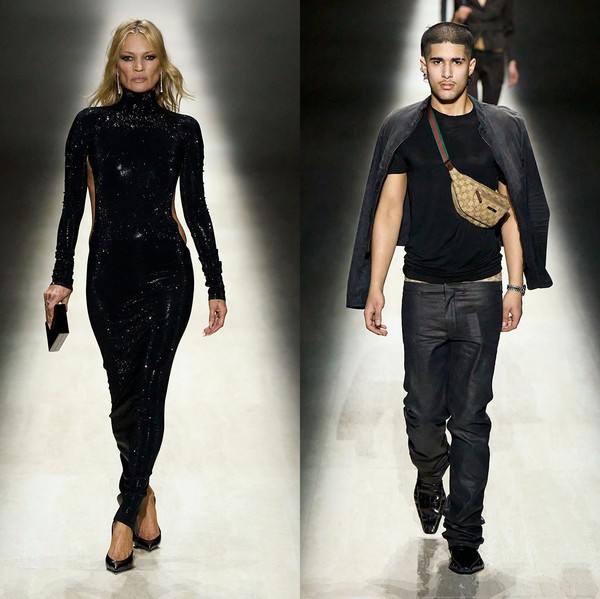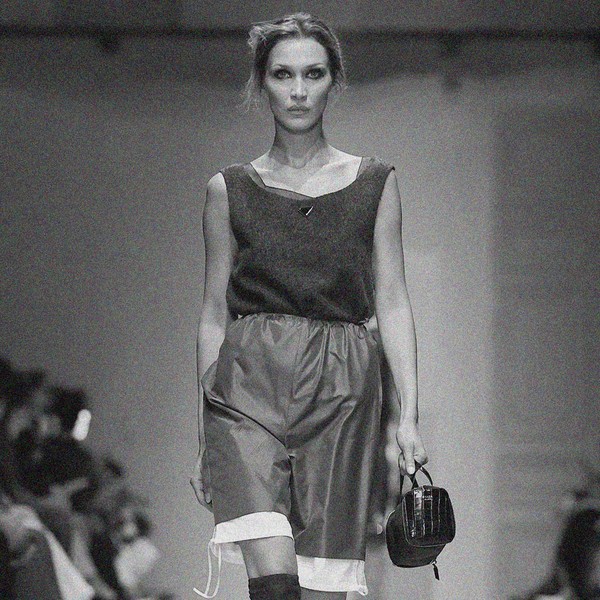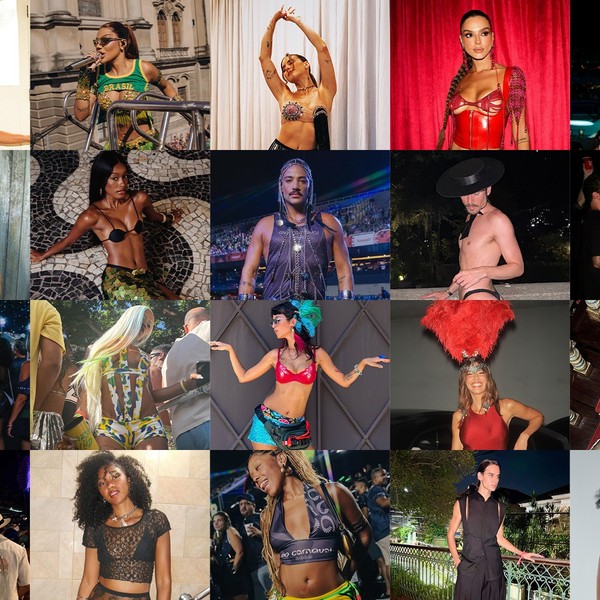Three Female Music Pioneers On One Track
With the release of their new track, Mia Moretti and DJ Minx pay homage to a matrilineal music tradition—and get us on the dance floor.
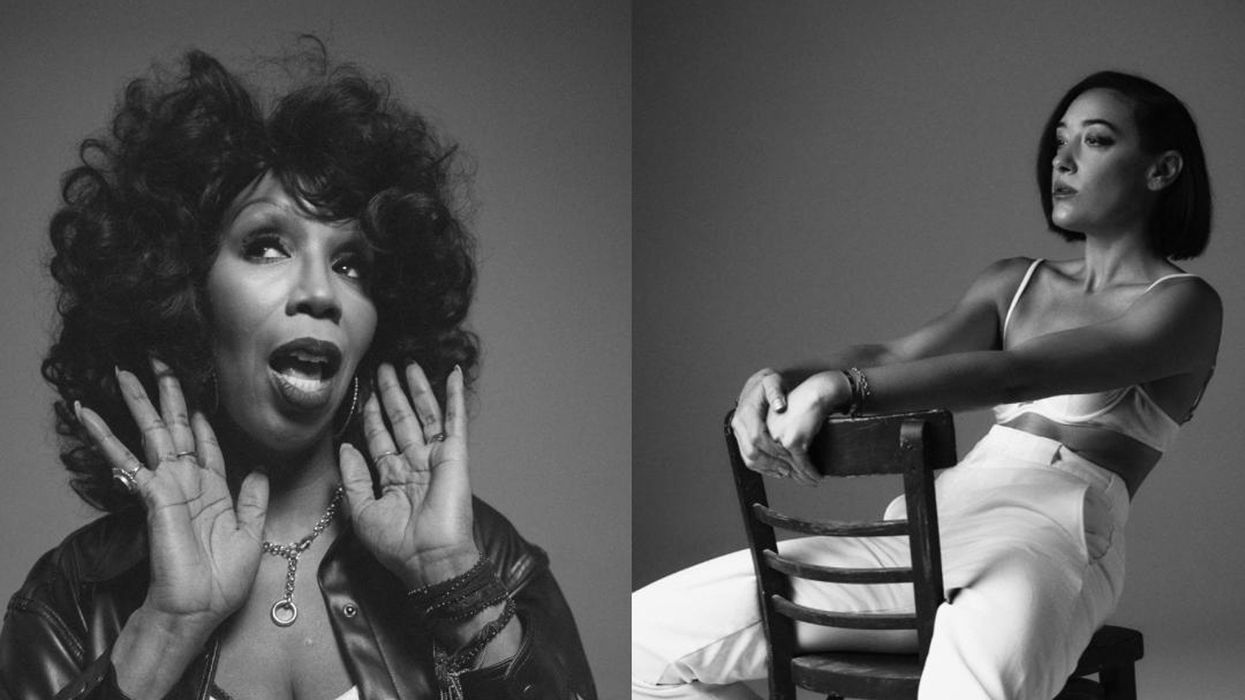
When Mia Moretti set out to produce her own music after almost two decades of DJing, the question on her mind was “Why?” As a DJ, she knew well the extent and breadth of the music already out there, so why should she make a record, and what could she contribute to the canon? The answer she kept landing on was this: "I play music to connect to people and to connect to where we came from.”
Core to her artistic approach is the belief in the power of music as a means for community and in its ability to transcend barriers—of language, of geography, of generation—and speak to the humanity of us all. Moretti’s latest release, a remix by the house and techno legend DJ Minx (real name Jennifer Witcher) of Moretti’s track “Piano de la Selva,” perfectly encapsulates this ethos. The remix and its original both sample “Bobby,” a track by Petrona Martínez, known as “The Queen of Bullerengue” for her legacy within the matrilineal, musical folk tradition developed on the Caribbean coasts of Colombia and Panama, which captivated Moretti during her travels.
With the addition of DJ Minx’s signature house groove and bassy thump, the track becomes a dance-floor-ready testament to the talents of three female legends. Though electronic music has provided community to (and has been majorly innovated upon by) LGBTQ+ people, women, and people of color, there have long been significant barriers to entry for these same groups. DJ Minx, founder of the record label Women on Wax and hailed as a pioneering force in the Detroit house and techno scene, faced such barriers when she was getting started in the ’90s.
“All I heard was, ‘This is a man’s world.’ It was drilled into my head that this was not something for me, and I fought to change that narrative,” she commented by email. “I was always nervous when I wanted to play records out in public because I kept hearing that same message. I don’t want other women to feel this way. I think they need to know that this is something they should and absolutely could do. The proposed limitations are no more; go for it.”
Coveteur is proud to premiere “Piano de la Selva (DJ Minx Remix)” as a celebration of Moretti, Minx, and Martínez. Here, Moretti joins us from a whirlwind week in Miami to discuss her approach to music-making, the secret to surviving the DJ lifestyle (a well-stocked go-bag with mysterious French Vitamin-C tablets), and the importance of uplifting other women in the space.
Maraya Fisher: I love the concept of the work of three different women spanning different generations, locations, and genres on one track. I was wondering if you could speak to your interest in bullerengue and why you chose the samples you did.
Mia Moretti: “I've been a DJ for longer than I've been a producer. I've been a DJ for over a decade—going on two. I think, as a DJ, I'm just always collecting records and finding voices and songs that really speak to me. There are the ones that you keep going back to because they stick and there's something in them that just connects to your soul.
With bullerengue music, it was a genre that I wasn't that familiar with until more recently. The first record I remixed was Totó la Momposina, and her voice haunted me. It was so pure and raw in a way that a lot of records and voices aren't anymore. It's rare that you hear a voice that feels like you could hear it coming out of their body. That, I felt, really connects you back to the earth, and music that connects us to the earth is the music I've been drawn to, especially when I started producing. What am I putting out that isn't already out? Why do I need to make a record? When I asked myself these questions, the answer that kept coming to me was, ‘I play music to connect to people and to connect to where we came from.’ I think that music has a really strong ability to do that.
That's what this music’s purpose always was: to connect communities. When we're connecting a community, how are we connecting? We're grounding ourselves through each other, and to the earth, and where we came from and where we're going. I want to share these voices with more people because it's a subgenre and not a lot of people had access to it.”
How did you come across bullerengue?
MM: “I was in Colombia working on another project, and I was record shopping one day because I always try to find a day to go record shopping wherever I travel. I found the section of bullerengue and Patrona Martínez. Her photo was so striking on the album cover, I just was like, ‘Who is this?’ As a DJ, that's how I've always been. You're drawn to something, and you don't really have a reason why, and then you just follow it.
I went into this bullerengue hole, and I just wanted to explore it more. I listened to a bunch of records and then found the ones that spoke to me. ‘Bobby’ by Patrona Martínez was one of those records, and I sampled it for ‘Piano de la Selva.’
Just to connect it to what you said before about three different genres, three women from totally different spaces, ages, geographical locations, and upbringings—in music, I don't think any of that matters. That's what's so beautiful about music. It’s something that connects people. It doesn't need to be a common language, it doesn't need to be a commonplace. For me, having DJ Minx remix, it wasn't about like, ‘Oh, she plays this kind of music or she's this type of DJ;’ I just knew that's what the record needed.”
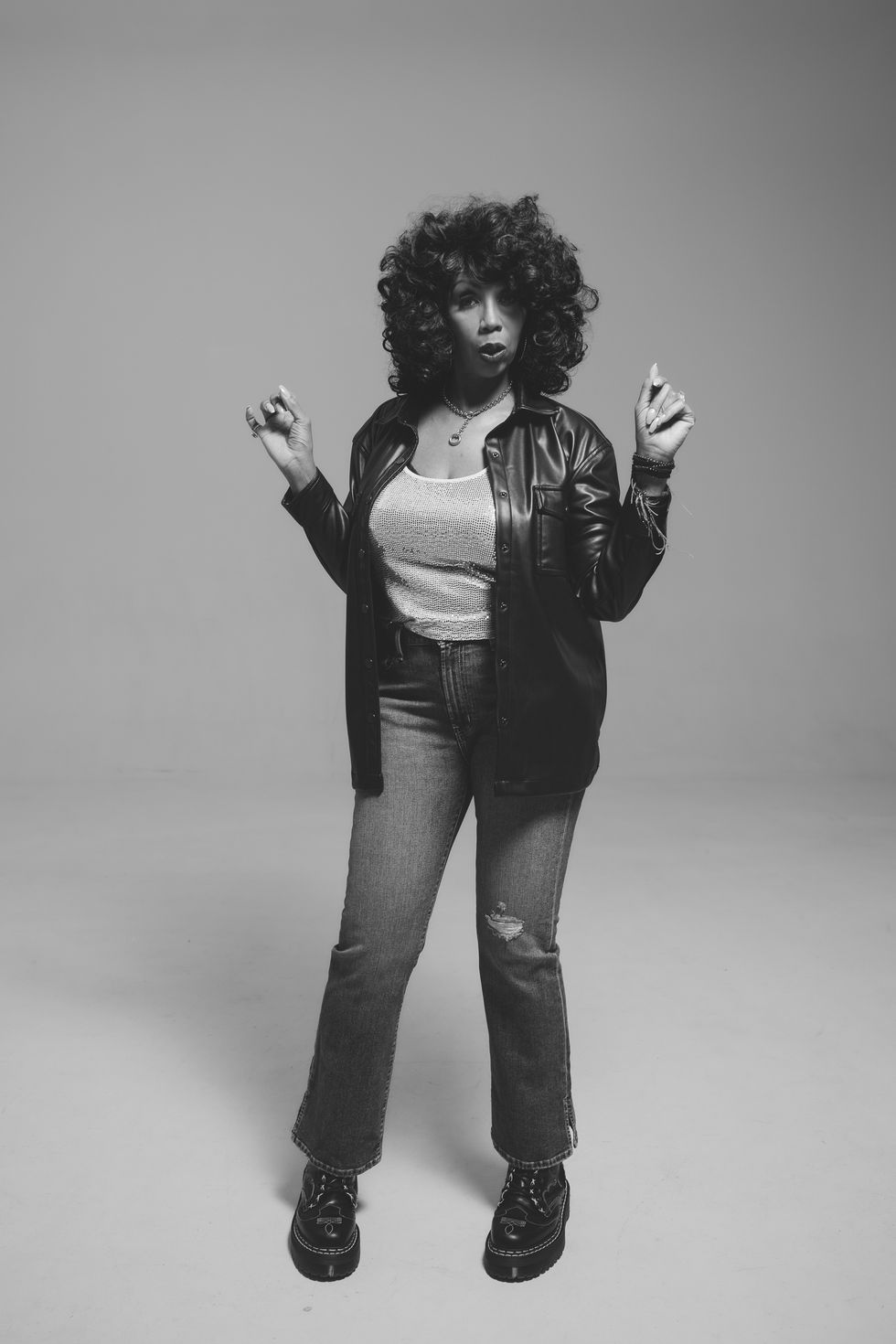
DJ Minx
Courtesy of Mia Moretti
Music does transcend. When you hear something that resonates, it resonates regardless.
MM: “Yeah. I think the more raw it is, the more it resonates. The more produced it is, it might be catchy, you might like it, or it might get stuck in your head for a bit, but I don't know if it's going to resonate on a deep level over a long period. For me at least. That's why I loved this music [bullerengue] and those voices because I just felt like they were something that is so rare nowadays.”
The matrilineal aspect of it is really cool.
MM: “When I read that these songs are passed through the women, through to the community, I was like, ‘Forget about it.’ Come on. I'm a woman. I'm passing this to my community. Let's go.”
How did you first become aware of DJ Minx and how did you make that connection for her to do the remix?
MM: “Minx had been on my radar. Everyone knows Minx. I think she's really a legend. She's the OG. Obviously, being from Detroit, playing house and techno, just being a Black woman in that space is so amazing. I think it was three years ago that she came out, which I think is amazing. There was stuff that didn’t exist when she started DJing, then she did it. So as soon as I knew I was going to do a couple of remixes for this EP, she was number one; I wanted Minx no matter what. When she said yes, I lost my mind.”
It works so well. Obviously, the song was modified, but I think it's very clear that she keeps your ethos intact with the changes and elements she adds.
MM: “I didn't know what to expect and somehow it's so Minx, but also it didn't lose the essence of the song. I call it the Minx effect. It's such a Minx record. It's so good.”
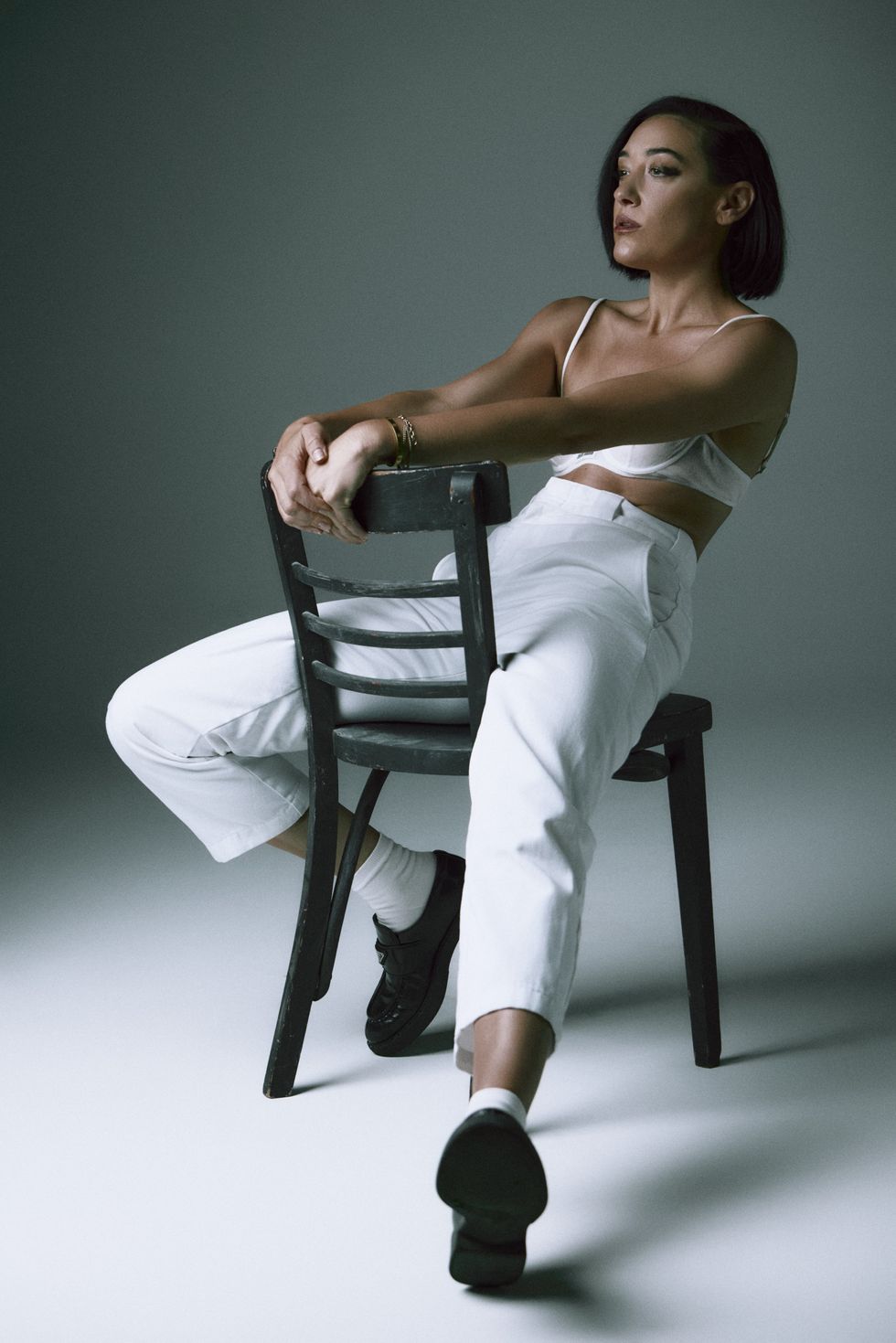
Courtesy of Mia Moretti
What was the impetus to start producing and making your own music?
MM: “Yeah. I think that the types of parties and events I was DJing were so varied. I felt like I had gotten good at being able to play anything, no matter what the occasion. I was craving narrowing that and to be able to hone in on one style, not to have to go from disco to house, to funk, to hip hop. So I thought production was the best place to start and really find my sound and focus it. Let me start making music and find this sound.”
That's my problem, too. I'm obsessed with too many genres, and I try to play everything.
MM: “It does feel like a Catch-22 with DJs, where it's almost like if you can do that, it's a curse because then you don't get known for one genre, and people really want to know you.”
Do you think your relationship with DJing has changed other than just the scale at which you're doing it?
MM: “It changes all the time. Totally. I think resets are really important for any artistic practice, where you sort of stop and back up and take a look at what you're doing and why you're doing it and reassess and then understand, ‘Okay, let me refocus.’"
Especially because the lifestyle can be such a whirlwind.
MM: “You totally lose track. I see it on micro levels and macro levels. Just in one week, you start going and you're on a hamster wheel, and then you're like, "Wait, why am I running to get to this place I didn't even want to go to?" We get in such a hurry to do things, and then you forget why you do it sometimes.”
What are your favorite kinds of events to play?
MM: “Honestly, I am most excited about the show I have tonight. It's with Diplo's label, Higher Ground. It's a showcase they're doing in a really small venue. Because the last few nights, my gigs have all been like bigass venues. It was a big backlot last night, which are so fun. Normally I would say that because the energy in those spaces is so incredible. The difference between DJing to a hundred people at a fashion party versus a crowd at Factory Town where you have 5,000 people is just like, whoa. You can't deny that energy rush of people and their excitement and joy.
I think going back and forth between big rooms and small, intimate rooms is really nice. And with lineups of DJs who I love and respect and am excited to hear also, because that’s what I think inspires us to want to keep playing and find new records to play. When you go hear a DJ you love, nothing is more inspiring.”
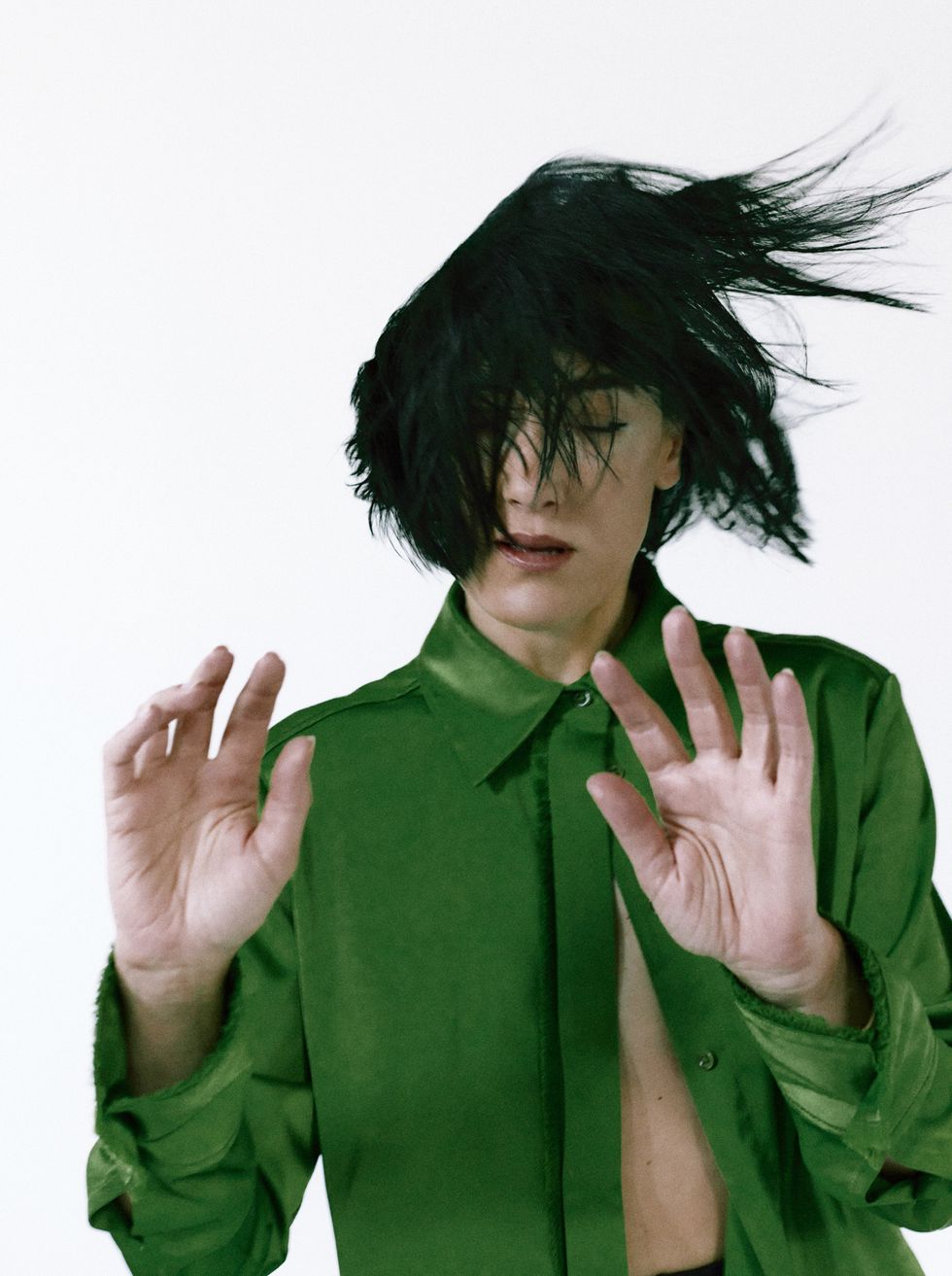
Courtesy of Mia Moretti
Do you have any tricks of the trade for keeping up with the DJ lifestyle?
MM: “This was literally my purse. [Holds up purse and displays each item.] Last night, while I was packing it, I was like, This is the best What's in My Bag. Because this is the secret of how to survive as a DJ. These are French Vitamin-C tablets that you put in water. They will save your life if you're jet-lagged or anything. I think there's caffeine in it, so you're like cracked out, but it also has Vitamin C. So every time I go to France, I buy jumbo packs of them and they save my life. Advil also saves our life. Probiotics. Biologique Recherche face spray that brings you back to life. A hairbrush, a mushroom chocolate.”
Definitely necessary.
MM: “An eyeliner, a concealer. What just fell out? A mint and a hair clip. Literally, you're good to go. Let's do it all night. 8:00 a.m., we got it.”
You just need a really good go bag.
MM: “And maybe some sunglasses.”
I love an impromptu What's in My Bag. That's honestly the most telling. Do you consider DJing and how a track's going to play live when you're making your own songs?
MM: “I don't think about how it's going to play live. I think more about how it's going to connect to people. I think that's why also I knew I wanted to do remixes of ‘Piano de la Selva’ because I knew that it wasn't necessarily going to be something I could play in all my sets, but I wanted to play them in all my sets.”
As you were getting started in your career, did you have any people who encouraged you or mentors who helped you out from the beginning?
MM: “I mean, everyone around me. I think that's the best thing about the DJ community: You're alone when you're on stage, but you're never really alone. DJ AM was the first DJ who lent me his turntables so I could start practicing mixing. I started on vinyl. I have no problem asking people for help, and anyone I asked always was supportive and helpful. I think most people want other people to succeed. I rarely heard no, and I would barely say no to anyone.
The thing about DJing is there's so much room for everyone. Look at this week, for example, it's like 50 clubs a night with 10 DJs on every lineup. And if this week is full, there's next week and there's the city over. Everyone always needs a DJ.”
It seems to me that you have this impulse to really include and uplift female voices and perspectives in the industry. Where do you think that impulse comes from?
MM: “Definitely, my mom. She just always supported whatever I did and is my number one fan. She never questioned at all. She was like, ‘Follow your heart, live your dreams.’ So I became a DJ, and I think because I had support, that's just my ethos, to love and lift. It's such a gift now. Once I started meeting more people, I realized that not everyone had that experience in their lives, especially from their parents, who are the most important people in our younger lives. My mom gave me a journal every year for my birthday, and the first page was like, ‘Follow your dreams.’”
That's so special. And yeah, the ability to pass that on and provide that for other people is just really awesome.
MM: “It's a major gift that I didn't realize was so rare. I feel very blessed.”

